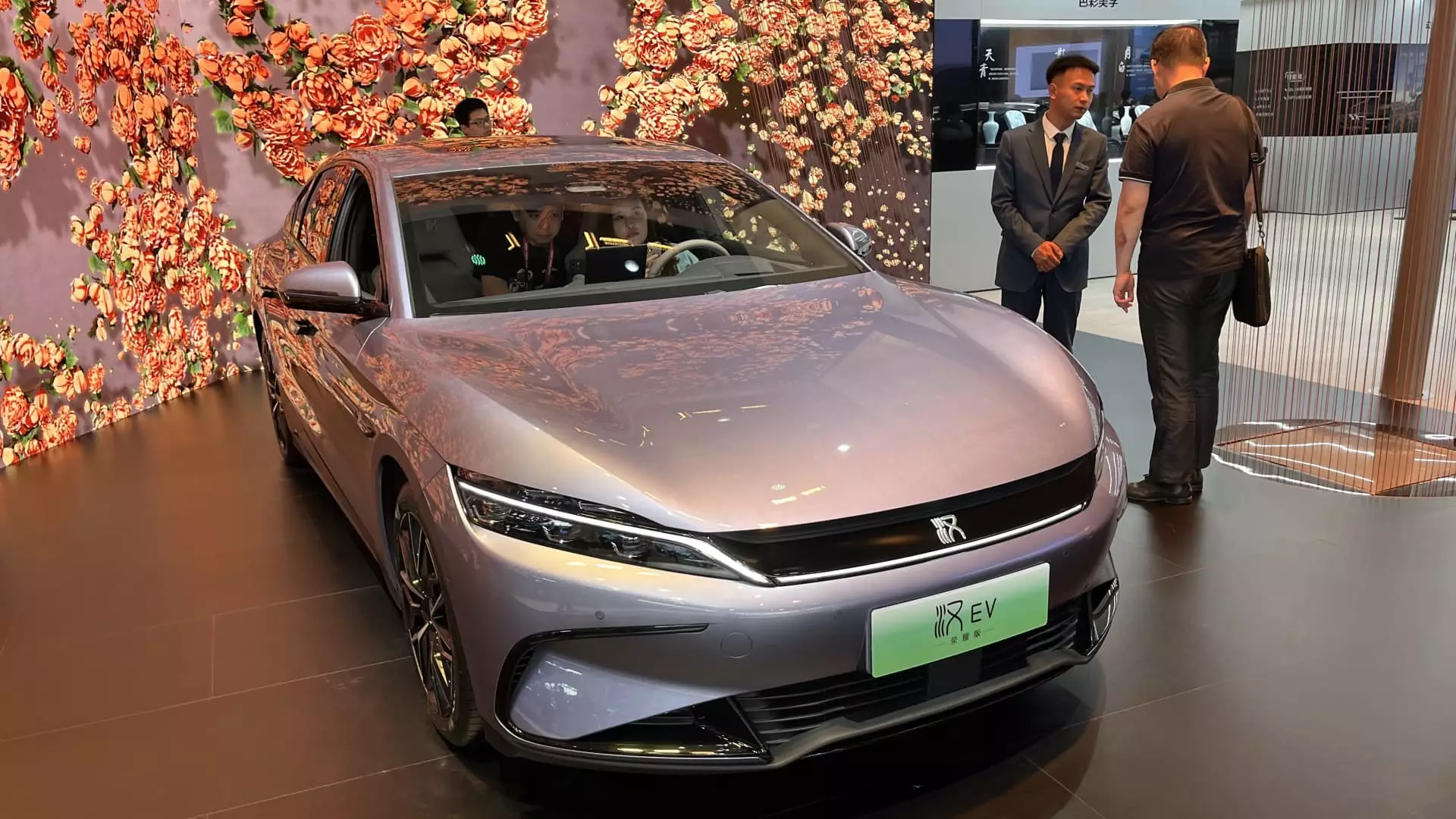The electric car market in China is witnessing a shift in consumer preferences that goes beyond mere price competitiveness. Recent surveys conducted by industry analysts have revealed that Chinese consumers are now placing a greater emphasis on the features and technology offered by electric vehicles. While price sensitivity remains a factor, the willingness to pay for value-added content is becoming increasingly apparent.
One such feature that has gained prominence in the minds of Chinese consumers is the panoramic sunroof. According to a survey conducted by JPMorgan, over 80% of Chinese consumers expressed a preference for an electric vehicle equipped with a panoramic sunroof. This preference extends to a willingness to pay a premium of more than 600 yuan for this feature. The market for panoramic sunroofs remains largely untapped, presenting opportunities for suppliers like Fuyao Glass, a major player in the automotive glass industry.
In addition to sunroofs, consumers in China are placing a significant emphasis on the technological features offered by electric cars. Survey results from consulting firm AlixPartners indicate that Chinese consumers prioritize tech features over price when making purchasing decisions. This trend was further accentuated at the Beijing auto show, where electric car makers showcased advanced driver-assist capabilities and in-car entertainment options.
While ancillary features are gaining traction, the core technology driving electric cars remains the battery. Approximately 70% of survey respondents expressed a willingness to pay a premium for a desired battery brand, particularly those offering supercharging capabilities. This trend bodes well for Contemporary Amperex Technology (CATL), a leading Chinese battery manufacturer that is ahead of its peers in superfast charging battery technology.
Despite the popularity of electric vehicles, there is a growing preference among Chinese consumers for hybrid-powered cars. JPMorgan’s latest survey indicates a significant increase in the number of respondents opting for plug-in hybrid vehicles over battery-only cars. This shift in consumer preference underscores the importance of offering a diverse range of options to cater to varying needs and preferences.
Brand Recognition and Competition
In the fiercely competitive landscape of China’s electric car market, brand recognition plays a crucial role in influencing consumer choices. While BYD continues to dominate as the preferred brand among consumers, new entrants like Xiaomi are gaining traction. The survey also highlighted the increasing recognition of brands like Geely, Huawei’s Aito, and Li Auto. Despite a slight decline in brand power, Tesla’s Model 3 remains highly desirable in its price range, reflecting the brand’s enduring appeal.
Market Dynamics and Pricing
As the market matures, Chinese electric car companies are exploring new pricing strategies to remain competitive. Nio’s recent launch of a lower-priced model signals a shift towards affordable offerings in the electric car segment. CEO William Li’s assertion that the EV price war in China is waning suggests a maturation of the market characterized by a focus on value propositions beyond price point.
The evolution of China’s electric car market underscores the changing preferences of consumers and the dynamic nature of competition in the industry. With a greater focus on features, technology, and brand differentiation, electric car manufacturers in China must adapt to meet the evolving demands of the market. By understanding and responding to these shifting trends, companies can position themselves for success in a rapidly evolving landscape.

